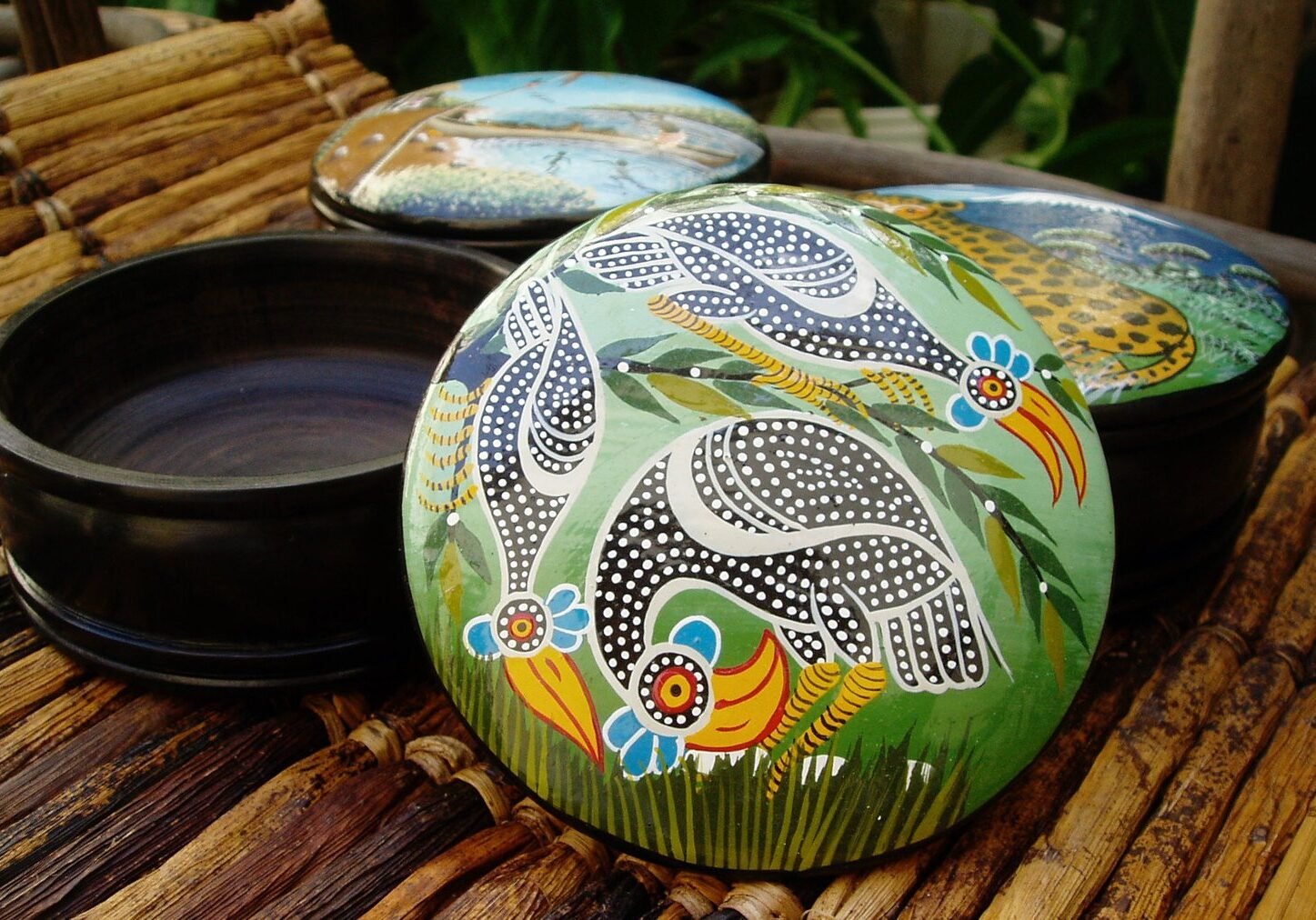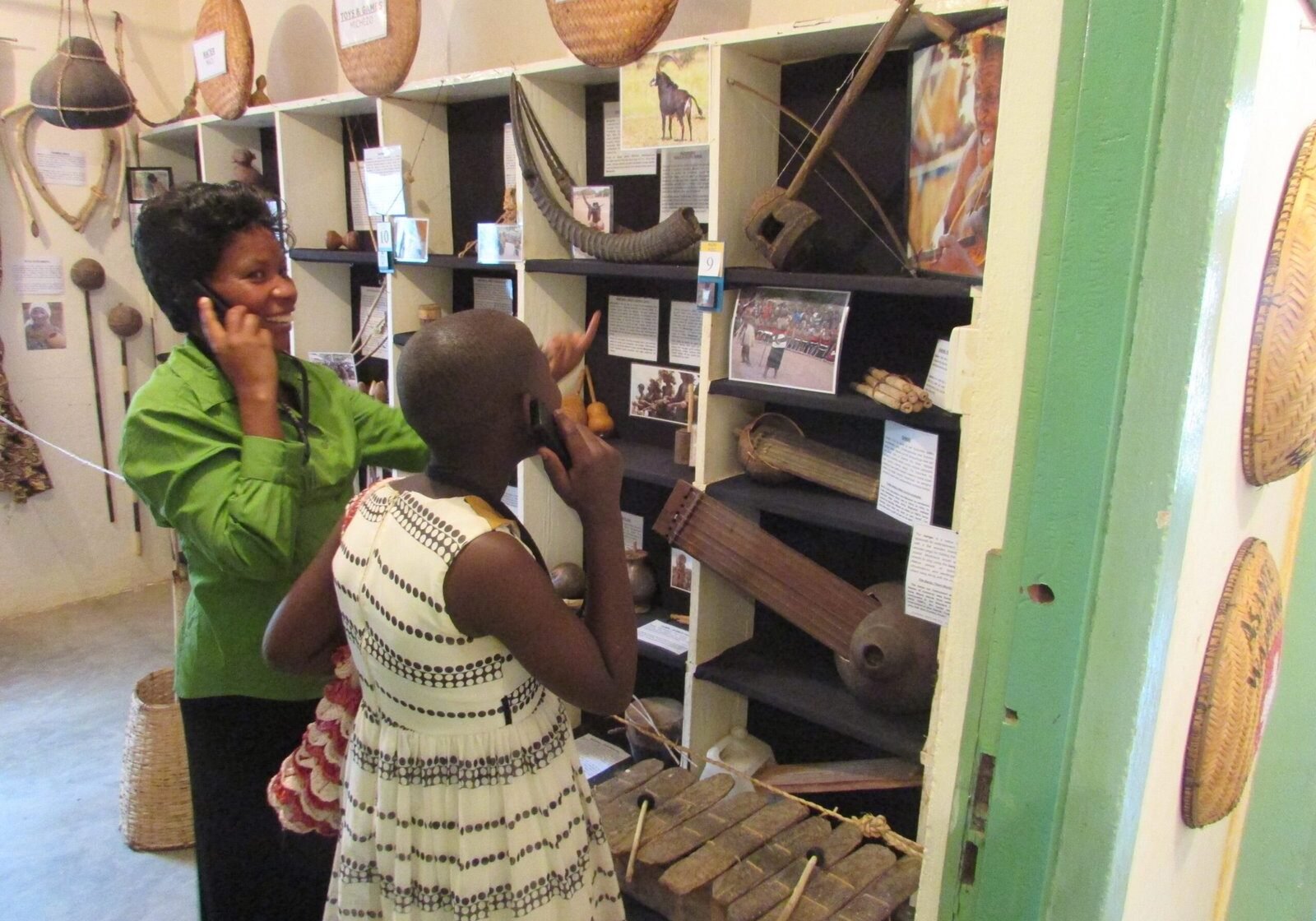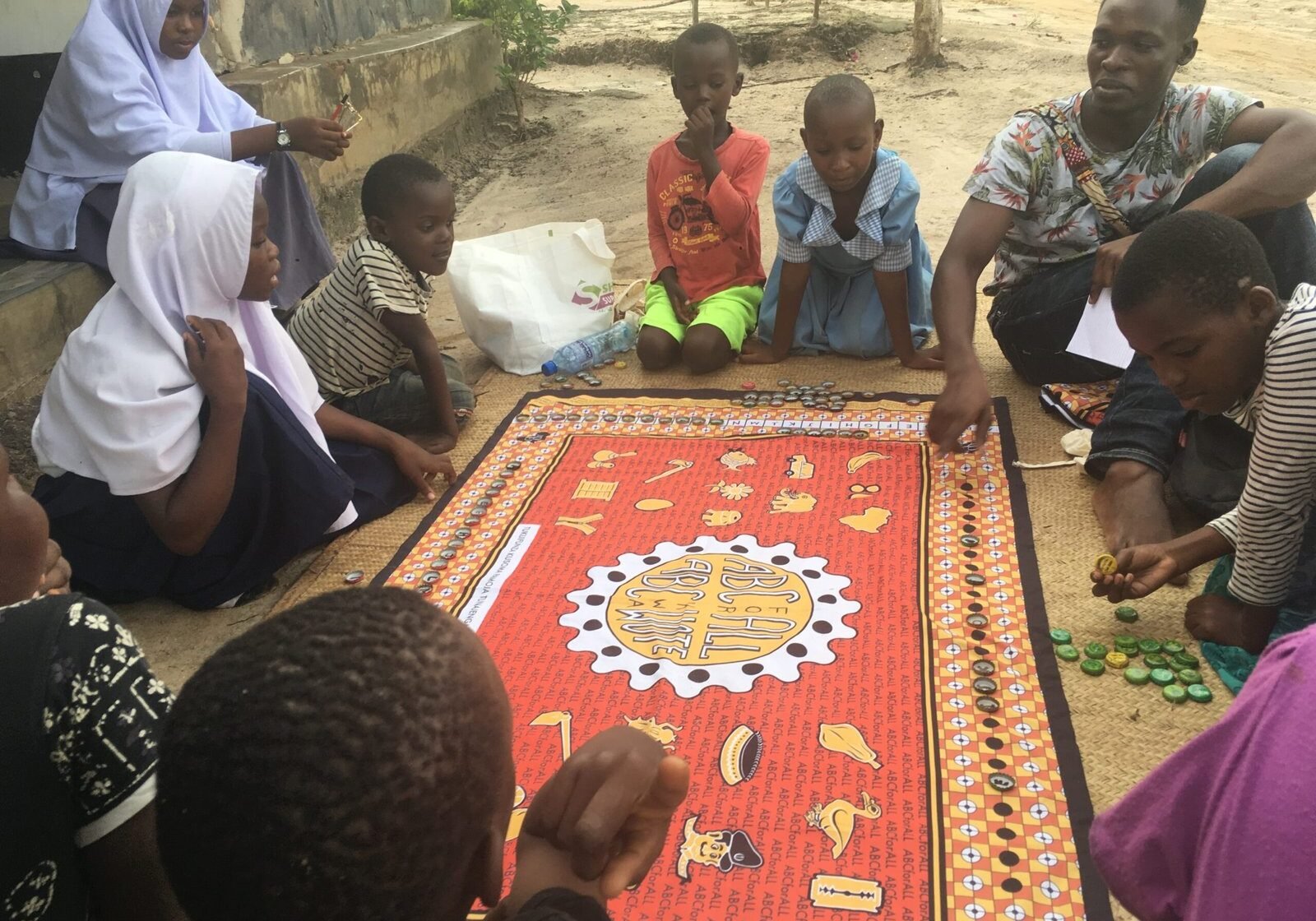ADEA Tanzania Partnership
In 2003 Douglas McFalls co-founded the Center for African Development through Economics and the Arts (ADEA) in Mtwara, Tanzania, with Tanzanian Philipo Lulale to focus on artisan development.
2003 - Artisan Development
2008 – 2014 - The MaKuYa Traditional Culture and Performing Arts Festival was launched to promote the local performing arts tradition.
2013 -The MaKuYa Cultural Museum was born.
2017 - The MaKuYa Learning Center to address the student struggles in reading, math, and geography.
2019 - Organizations restructured into a formal partnership between ADEA in Tanzania and the ADEA Foundation.
2020 - ABC for All educational textiles designed.
2021 - We have exciting plans for the future.
ADEA in Tanzania
In 2003 Douglas McFalls co-founded and began co-directing the Center for African Development through Economics and the Arts (ADEA) in Mtwara, Tanzania, with Tanzanian Philipo Lulale, a gifted educator, carver, and journalist. Our initial programming assisted artisans in becoming aware and taking better advantage of income-generating opportunities within Tanzania. In 2008 we launched the first of six MaKuYa Traditional Culture and Performing Arts Festival to promote the local performing arts tradition. In 2013 we initiated the first gallery (in our corridor) of the MaKuYa Cultural Museum. In 2015 we expanded our museum to include our Learning Center to address the student struggles in reading, math, and geography. In 2019 we restructured our relationship into a formal partnership, with ADEA in Tanzania being entirely run and governed by the Tanzanian team and Douglas functioning through the ADEA Foundation.


Artisan and Product Development
The initial programming of ADEA helped artisans become aware and take better advantage of income-generating opportunities within Tanzania. We provided workshops on product development, production efficiency and consistency, client relationships, quality control, and marketing. Through our gift shop, connections with clients, and participation in gift markets, ADEA artisans gained a name for themselves for high-quality and unique products. The steadier income allowed them to strengthen their families by putting their children in school, providing year-round food, and improving their health.
The MaKuYa Traditional Culture
and Performing Arts Festival
The southwest region of Tanzania is rich with rural performing arts traditions. To promote these traditions as modernization sweeps over Africa, ADEA launched in 2008 the first of the six MaKuYa Traditional Culture and Performing Arts Festivals. Annually nearly 4000 visitors enjoyed the dance culture of Makonde, Makua, and Yao people. The MaKuYa Festival was rated the number one cultural event of Tanzania for several years and sparked a renaissance of the performing arts and cultural interest across the region. We last hosted the festival in 2014, and we expect to revive these festivals at both large and village levels and to use them as platforms to promote our early childhood education initiatives. Activities and performances will be choreographed to help families, and their communities will better prepare their children to enter school with foundational literacy, math, and confidence skills. [For history and more images of the festival go to: Makuya Museum


The MaKuYa Cultural Museum
Our MaKuYa Cultural Museum grew out of our MaKuYa Festival Traditional Life Pavilion. Each year artifacts and stories from the Makonde, Makua, and Yao tribes were collected and presented at the festival, then put on display at our museum for the duration of the year. Yearly our collections are expanding as we welcome an ever-increasing number and diversity of visitors. In 2020, over 3000 visitors (mostly local students and school groups) visited our galleries, played our learning games, and listened to our Guide ID audio tours. Our ongoing interviews with elders provide us insight and understanding of local life and history from a local perspective. We call thisAfrican History from African Voices.[For more information to: Makuya Museum
The MaKuYa Learning Center
In 2015 we opened the MaKuYa Learning Center to address the crisis of children being weak in the foundational skills of literacy and math. We are inventing innovative play-based teaching approaches that are sensitive to local cultural and economic realities. Our weekly Cool Saturdays (Jumamosi Poa – JMP) programs provide fun and engaging educational activities in an intentionally shame-free environment (link). Children enjoy games designed to help them master the alphabet, work through math challenges, and explore geography in our & Kujua Jiograpfia & (To know Geography) room (link). Even without promotion, up to 200 children attend JMP every Saturday. [For more information to Makuya Museum


ABC for ALL Khanga
Building on what began in 2020 with the alphabet, we have discovered the potential, viability, and logic around educational khangas (textile) production. When we understood that the
foundational step for learning to read is exposure to print, and not necessarily books, a world of opportunities opened up for us. We are now pushing our designs beyond just the alphabet and into early readers and foundational math. Our target is communities and schools in under-resourced rural populations across Africa, as well as western markets. In rural areas, traditional paper books face many dangers: water, fire, insects, and dirt; they are unfamiliar and seen as a child's thing. Our textiles will provide the same content as books in a more durable, play-based, and communal format. We believe our approach to exposing non-readers across Sub-Saharan Africa could have a measurable impact, and we are aiming to find out.
